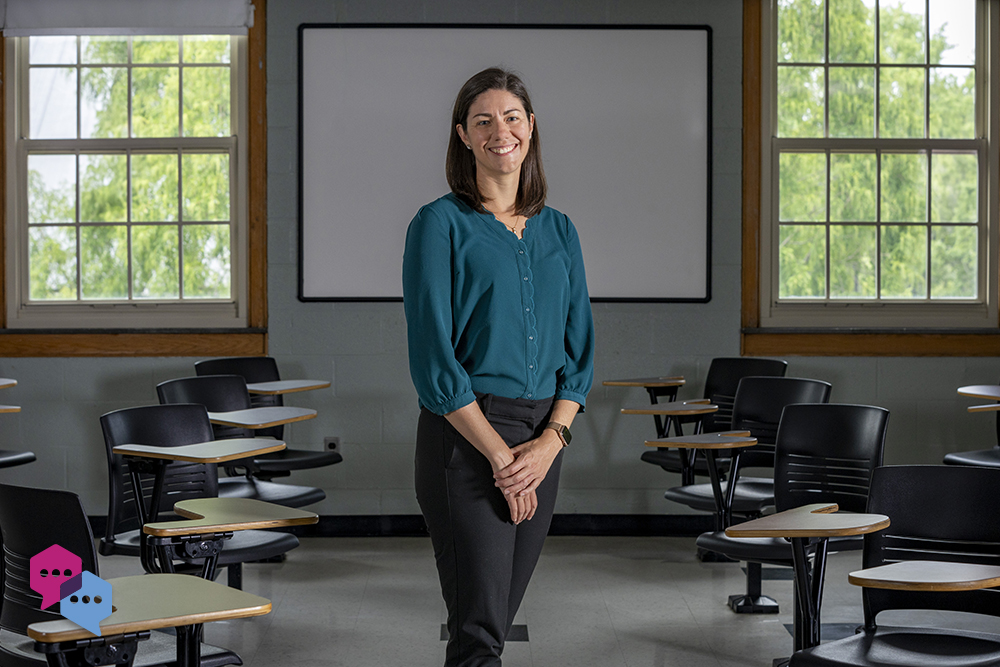Kathryn Leech is an assistant professor in the UNC School of Education. She studies how adult-child social interactions — like conversations with parents — support early childhood language and cognitive development.
Q: How did you discover your specific field of study?
A: In college, I thought I would pursue a career in public or education policy. It wasn’t until I volunteered at an Early Head Start preschool in rural Ohio for a service-learning course that I discovered my interest in language development during early childhood. This experience led me to graduate school to study how adult-child interactions support language development.
The research I am doing now began as a realization in graduate school while transcribing countless hours of parent-child interactions. I noticed many instances where children were learning more than just language from these conversations. For instance, parents often introduce and explain complex ideas, prompting me to explore how these interactions can foster not only language development but also early STEM learning.
Q: Academics are problem-solvers. Describe a research challenge you’ve faced and how you overcame it.
A: During the COVID-19 pandemic, I had to continue data collection while adhering to health guidelines, which prevented in-home data collection visits with families. To overcome this, my lab developed a remote data collection protocol that allowed us to gather naturalistic data through virtual interactions. This adaptation actually led to a significant upside: We were able to include families from a wider geographic area, resulting in more diverse and representative samples.
Q: Describe your research in five words.
A: Conversations build language and minds.
Q: Who or what inspires you? Why?
A: My kids, who are 4 and 1. Their curiosity and joy in exploring the world around them constantly remind me of the amazing potential every child has for learning.
Q: If you could pursue any other career, what would it be and why?
A: A swim coach. I was a competitive swimmer through college and was part of a team that used a lot of data to guide our training and racing. At the time, I didn’t fully appreciate the value of my coach’s approach. Now, as an education researcher who works extensively with data, I see how effective it was. Coaching would let me blend my passion for swimming with my love for working with and mentoring young people.


